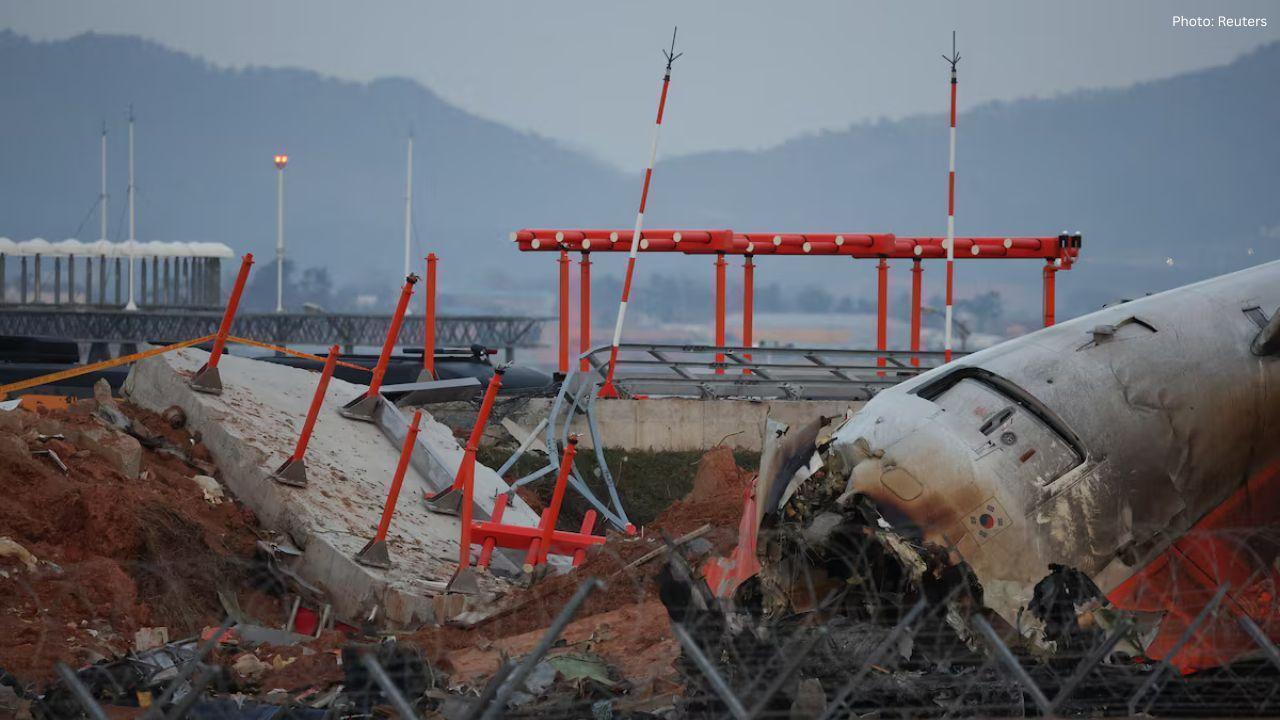You have not yet added any article to your bookmarks!

Join 10k+ people to get notified about new posts, news and tips.
Do not worry we don't spam!

Post by : Anis Farhan
The startup ecosystem in Southeast Asia is entering a transformative phase, powered by a new class of ventures known as “meta-startups”—AI-native businesses that transcend traditional verticals, function across multiple industries, and scale through cloud, data, and cross-border digital infrastructure. These companies, often born post-2020, are not just solving isolated problems. They are building ecosystems that integrate artificial intelligence, trade technology, and decentralized supply chain networks.
From Bangkok to Jakarta, from Ho Chi Minh City to Manila, meta-startups are leveraging Southeast Asia’s fragmented but fast-digitizing market to introduce AI-powered trade facilitation tools, logistics orchestration platforms, smart inventory systems, and predictive commerce engines. They are not unicorns in the making—they’re infrastructure enablers, the quiet backbone of Southeast Asia’s AI-powered trade future.
While much of the world focuses on Silicon Valley’s AI giants, a subtler revolution is underway in Southeast Asia—one that fuses commerce with computation in culturally localized, hyper-agile formats.
Meta-startups differ from traditional startups in three key ways:
They’re Born AI-First: Unlike older startups that adopted AI later, meta-startups embed machine learning, automation, and natural language processing into their core from day one.
They Operate Cross-Vertically: These startups aren’t bound to a single industry. One product may serve fintech clients, logistics companies, and healthcare chains simultaneously, thanks to modular tech stacks.
They Are Borderless by Design: Meta-startups build with scalability in mind—targeting Southeast Asia as a region rather than individual countries. This enables faster growth, more fluid data sharing, and better cross-market product fit.
In essence, meta-startups are not trying to be the next Shopee or Grab. They’re trying to be the digital nervous system that connects such giants—and the thousands of SMEs working behind them.
Southeast Asia offers a uniquely fertile ground for AI-native meta-startups:
Digital infrastructure is catching up fast thanks to government initiatives, 5G expansion, and widespread mobile adoption.
A young, entrepreneurial population is more open to digital experimentation and cloud-based workflows.
The region’s fragmentation (language, logistics, law) creates opportunities for startups offering plug-and-play solutions that solve localization challenges.
Cross-border trade is booming, especially in e-commerce, manufacturing, and fintech. Startups that streamline this growth are in high demand.
Governments are increasingly supportive. Indonesia’s “100 Smart Cities” initiative, Vietnam’s National Strategy on AI, and Singapore’s Tech.Pass program are just a few policy pushes making it easier for high-tech startups to find capital, talent, and regulatory support.
Southeast Asia is expected to surpass $250 billion in cross-border digital commerce by 2026. Meta-startups are seizing this momentum by optimizing everything from shipping routes to demand forecasting using AI.
Some of the most impactful areas include:
Smart Warehousing: Startups like Boxme (Vietnam) and Locad (Philippines) use AI to manage decentralized storage across countries, reducing delivery times and carbon footprints.
Customs Intelligence: AI-powered platforms are helping exporters navigate the complex customs processes of ASEAN countries, minimizing bottlenecks and errors.
Trade Finance Automation: New platforms are using machine learning to assess SME credit risk in real-time, enabling faster, lower-risk cross-border loans.
Predictive Supply Chain Platforms: By analyzing real-time weather, demand patterns, and geopolitical events, these tools help businesses avoid disruptions.
Rather than replacing jobs, these tools enhance productivity, especially for Southeast Asia’s large base of small and medium businesses (SMBs), many of which struggle with scaling.
Over $3.8 billion in funding flowed into AI-native startups across Southeast Asia in 2024.
Vietnam, Thailand, and Indonesia saw a 44% increase in AI-related startup registration post-2023.
7 out of 10 VC firms surveyed in a 2025 ASEAN tech report say they are prioritizing interoperable platforms and cross-industry AI tools.
Meta-startups are not typically consumer-facing, but their impact is vast. They power the logistics that deliver your parcels, the analytics that inform regional trade strategy, and the automation behind invoice reconciliations.
Interestingly, the rise of Southeast Asia’s meta-startups is being supported by global cloud providers, regional accelerators, and open-source AI frameworks. AWS, Google Cloud, Alibaba Cloud, and Microsoft Azure are competing fiercely to support these startups with infrastructure credits, training, and go-to-market programs.
At the same time, regional alliances such as ASEAN Digital Masterplan 2025 are pushing for greater data portability, AI ethics guidelines, and shared regulatory frameworks to boost confidence in regional digital trade.
This collaboration allows even early-stage startups to scale fast. With cloud-native stacks and API-ready models, a startup in Cebu can serve clients in Kuala Lumpur and Phnom Penh in under six months.
But the future isn’t without hurdles.
Data localization laws in countries like Indonesia may complicate cross-border AI deployments.
Talent shortages, particularly in AI engineering and cloud architecture, are slowing some product launches.
Fragmented payment systems and inconsistent regulations continue to pose friction points for seamless trade.
Meta-startups must also grapple with ethical AI use—ensuring transparency in automated decision-making, mitigating algorithmic bias, and protecting user privacy.
Still, given their agility, meta-startups are uniquely positioned to respond quickly to evolving regulations and public sentiment, often faster than legacy corporations or traditional SMEs.
Meta-startups are more than a buzzword—they represent the next stage of digital evolution for Southeast Asia. These companies, armed with AI, are turning regional diversity into a competitive advantage, connecting digital islands into a unified trade web.
They’re building tools that not only solve for scale but also for resilience—whether it’s predicting trade disruptions in the Mekong Delta or automating customs clearance in Laos. As global supply chains become more uncertain, Southeast Asia’s homegrown AI-native startups may hold the keys to making regional trade smarter, faster, and more inclusive.
In a decade, when we look back at Southeast Asia’s economic leap, we may not see unicorns dominating headlines. Instead, we’ll see a quiet revolution led by meta-startups—small teams, big impact, and a continent transformed.
This article is for informational purposes only and does not offer investment, legal, or trade advice. All insights are based on publicly reported trends, market analysis, and regional business developments. Readers are advised to verify figures and consult with professionals before making business or investment decisions.










Ranveer Singh’s Dhurandhar Roars Past ₹1100 Cr Worldwide
Ranveer Singh’s Dhurandhar stays unstoppable in week four, crossing ₹1100 crore globally and overtak

Asian Stocks Surge as Dollar Dips, Silver Hits $80 Amid Rate Cut Hopes
Asian markets rally to six-week highs while silver breaks $80, driven by Federal Reserve rate cut ex

Balendra Shah Joins Rastriya Swatantra Party Ahead of Nepal Polls
Kathmandu Mayor Balendra Shah allies with Rastriya Swatantra Party, led by Rabi Lamichhane, to chall

Australia launches review of law enforcement after Bondi shooting
Australia begins an independent review of law enforcement actions and laws after the Bondi mass shoo

Akshaye Khanna exits Drishyam 3; Jaideep Ahlawat steps in fast
Producer confirms Jaideep Ahlawat replaces Akshaye Khanna in Drishyam 3 after actor’s sudden exit ov

Kapil Sharma’s Kis Kisko Pyaar Karoon 2 to Re-release in January 2026
After limited screens affected its run, Kapil Sharma’s comedy film Kis Kisko Pyaar Karoon 2 will ret